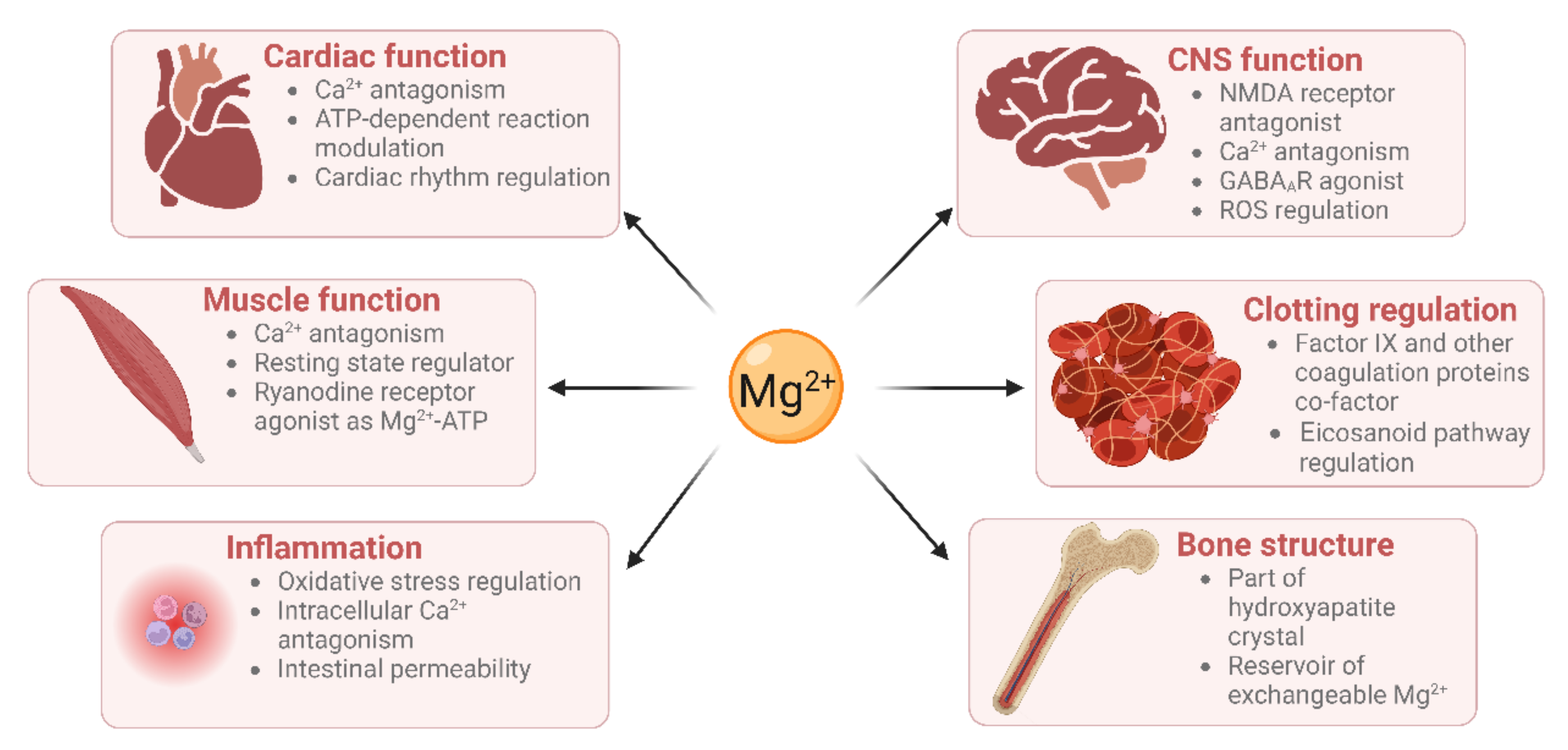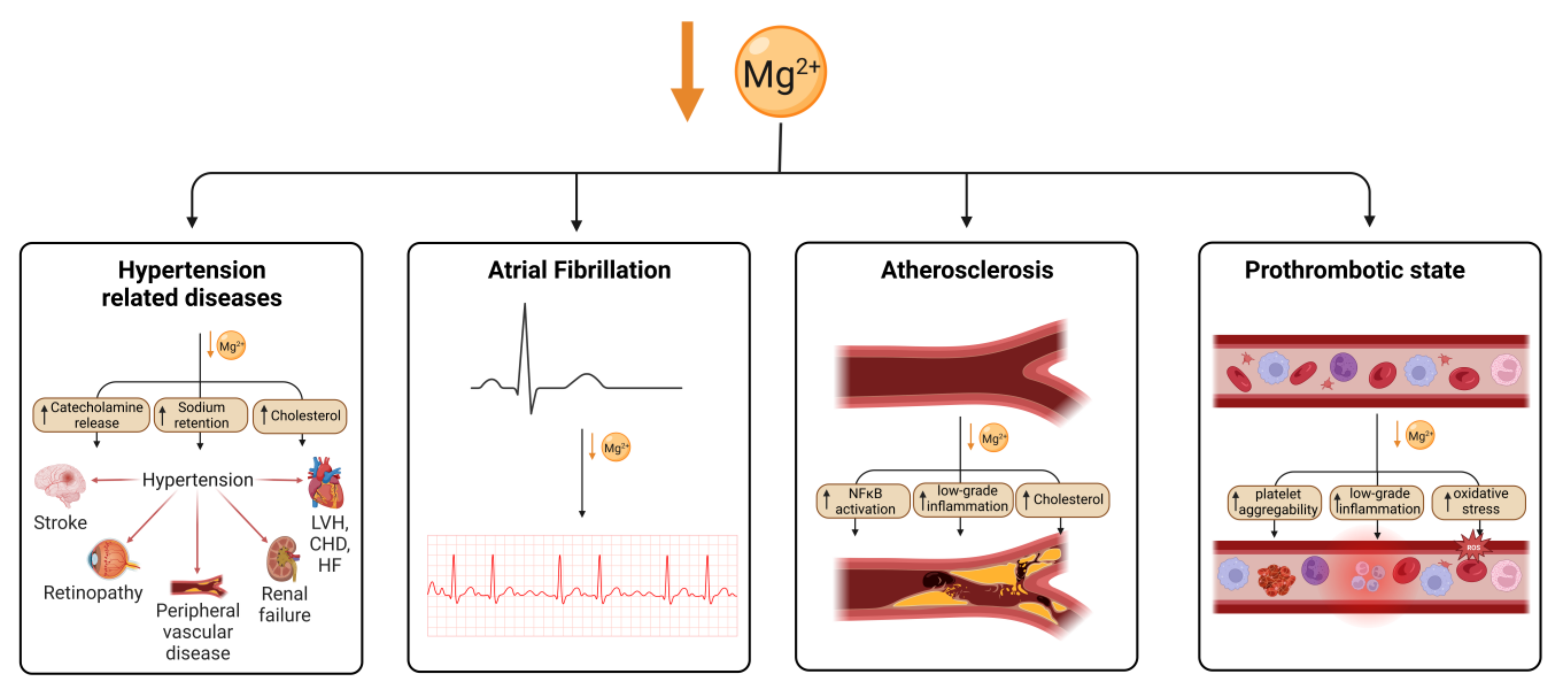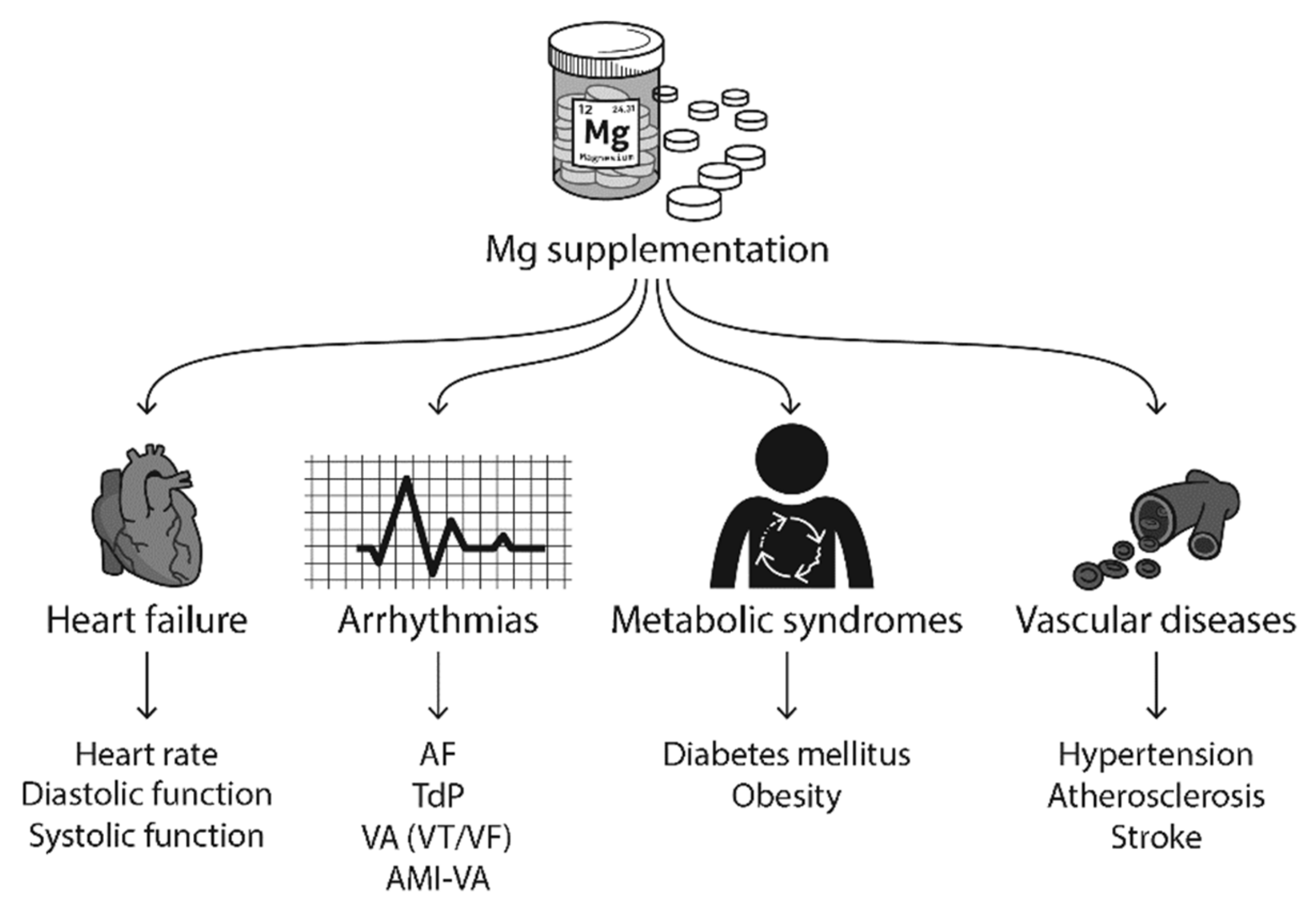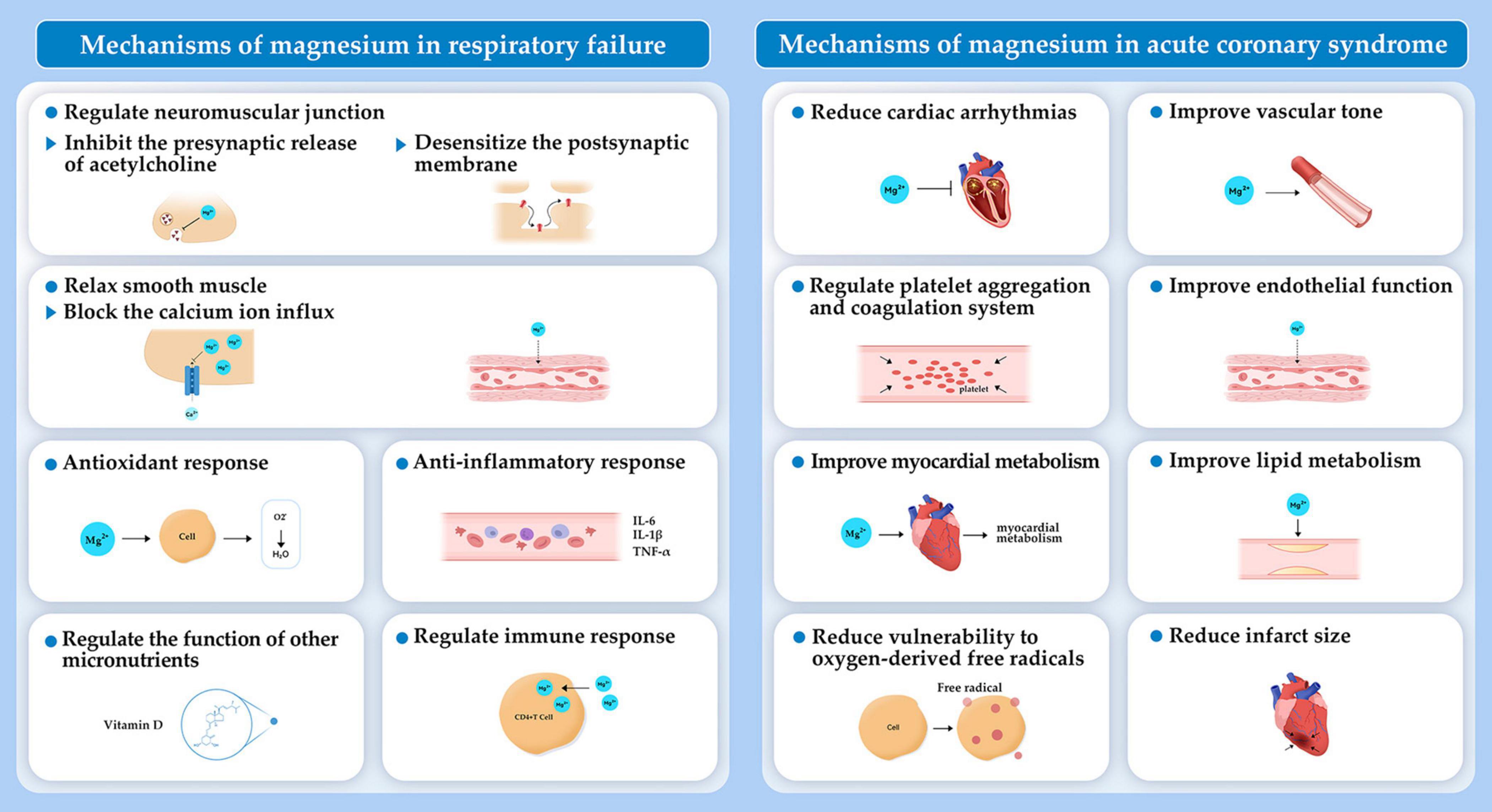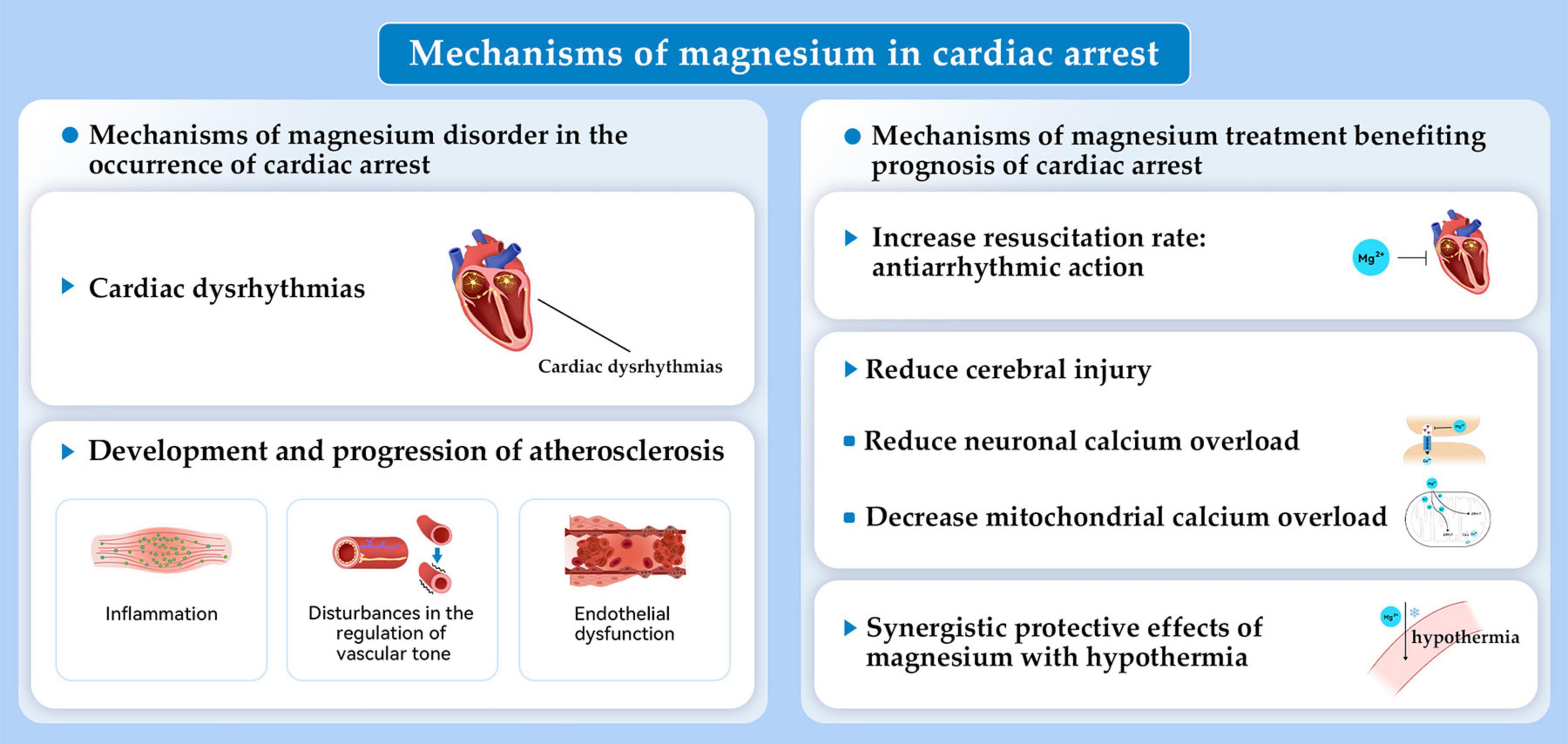Use Of Magnesium In Cardiac Arrest - Magnesium, a vital mineral for overall health, has shown promising potential in. Here, we summarize studies on magnesium and the prognosis of cardiac arrest in basic studies, clinical studies, and the combined effect of. Magnesium sulfate is effective as an anticonvulsant and an antiarrhythmic. The current findings support the view that magnesium disorder is associated with increased risk of cardiac arrest as well as. It is used to treat polymorphic ventricular tachycardia with a. Magnesium and its impact on cardiac arrest outcomes.
Magnesium, a vital mineral for overall health, has shown promising potential in. The current findings support the view that magnesium disorder is associated with increased risk of cardiac arrest as well as. Magnesium sulfate is effective as an anticonvulsant and an antiarrhythmic. Here, we summarize studies on magnesium and the prognosis of cardiac arrest in basic studies, clinical studies, and the combined effect of. It is used to treat polymorphic ventricular tachycardia with a. Magnesium and its impact on cardiac arrest outcomes.
The current findings support the view that magnesium disorder is associated with increased risk of cardiac arrest as well as. Magnesium and its impact on cardiac arrest outcomes. It is used to treat polymorphic ventricular tachycardia with a. Magnesium sulfate is effective as an anticonvulsant and an antiarrhythmic. Magnesium, a vital mineral for overall health, has shown promising potential in. Here, we summarize studies on magnesium and the prognosis of cardiac arrest in basic studies, clinical studies, and the combined effect of.
Nutrients Free FullText Magnesium Deficiency and Cardiometabolic
Magnesium, a vital mineral for overall health, has shown promising potential in. Magnesium and its impact on cardiac arrest outcomes. Here, we summarize studies on magnesium and the prognosis of cardiac arrest in basic studies, clinical studies, and the combined effect of. Magnesium sulfate is effective as an anticonvulsant and an antiarrhythmic. It is used to treat polymorphic ventricular tachycardia.
Part 7.2 Management of Cardiac Arrest Circulation
The current findings support the view that magnesium disorder is associated with increased risk of cardiac arrest as well as. Magnesium, a vital mineral for overall health, has shown promising potential in. Magnesium and its impact on cardiac arrest outcomes. Magnesium sulfate is effective as an anticonvulsant and an antiarrhythmic. It is used to treat polymorphic ventricular tachycardia with a.
Magnesium And Anaesthesia WFSA Resources
The current findings support the view that magnesium disorder is associated with increased risk of cardiac arrest as well as. It is used to treat polymorphic ventricular tachycardia with a. Magnesium sulfate is effective as an anticonvulsant and an antiarrhythmic. Here, we summarize studies on magnesium and the prognosis of cardiac arrest in basic studies, clinical studies, and the combined.
Nutrients Free FullText Magnesium Deficiency and Cardiometabolic
Magnesium, a vital mineral for overall health, has shown promising potential in. Here, we summarize studies on magnesium and the prognosis of cardiac arrest in basic studies, clinical studies, and the combined effect of. Magnesium sulfate is effective as an anticonvulsant and an antiarrhythmic. The current findings support the view that magnesium disorder is associated with increased risk of cardiac.
Antioxidants Free FullText Magnesium, Oxidative Stress
It is used to treat polymorphic ventricular tachycardia with a. Magnesium sulfate is effective as an anticonvulsant and an antiarrhythmic. Magnesium, a vital mineral for overall health, has shown promising potential in. Magnesium and its impact on cardiac arrest outcomes. Here, we summarize studies on magnesium and the prognosis of cardiac arrest in basic studies, clinical studies, and the combined.
Frontiers The role of magnesium in cardiac arrest
Magnesium sulfate is effective as an anticonvulsant and an antiarrhythmic. Magnesium and its impact on cardiac arrest outcomes. Magnesium, a vital mineral for overall health, has shown promising potential in. It is used to treat polymorphic ventricular tachycardia with a. Here, we summarize studies on magnesium and the prognosis of cardiac arrest in basic studies, clinical studies, and the combined.
Rapid Treatment with Intramuscular Magnesium Sulfate During
Magnesium sulfate is effective as an anticonvulsant and an antiarrhythmic. Magnesium, a vital mineral for overall health, has shown promising potential in. Magnesium and its impact on cardiac arrest outcomes. Here, we summarize studies on magnesium and the prognosis of cardiac arrest in basic studies, clinical studies, and the combined effect of. The current findings support the view that magnesium.
2018 American Heart Association Focused Update on Advanced
Magnesium sulfate is effective as an anticonvulsant and an antiarrhythmic. Magnesium and its impact on cardiac arrest outcomes. It is used to treat polymorphic ventricular tachycardia with a. Magnesium, a vital mineral for overall health, has shown promising potential in. The current findings support the view that magnesium disorder is associated with increased risk of cardiac arrest as well as.
Frontiers The role of magnesium in cardiac arrest
Magnesium and its impact on cardiac arrest outcomes. Magnesium, a vital mineral for overall health, has shown promising potential in. Magnesium sulfate is effective as an anticonvulsant and an antiarrhythmic. It is used to treat polymorphic ventricular tachycardia with a. Here, we summarize studies on magnesium and the prognosis of cardiac arrest in basic studies, clinical studies, and the combined.
Rapid Treatment with Intramuscular Magnesium Sulfate During
Magnesium sulfate is effective as an anticonvulsant and an antiarrhythmic. The current findings support the view that magnesium disorder is associated with increased risk of cardiac arrest as well as. It is used to treat polymorphic ventricular tachycardia with a. Here, we summarize studies on magnesium and the prognosis of cardiac arrest in basic studies, clinical studies, and the combined.
The Current Findings Support The View That Magnesium Disorder Is Associated With Increased Risk Of Cardiac Arrest As Well As.
Here, we summarize studies on magnesium and the prognosis of cardiac arrest in basic studies, clinical studies, and the combined effect of. Magnesium, a vital mineral for overall health, has shown promising potential in. Magnesium and its impact on cardiac arrest outcomes. It is used to treat polymorphic ventricular tachycardia with a.
